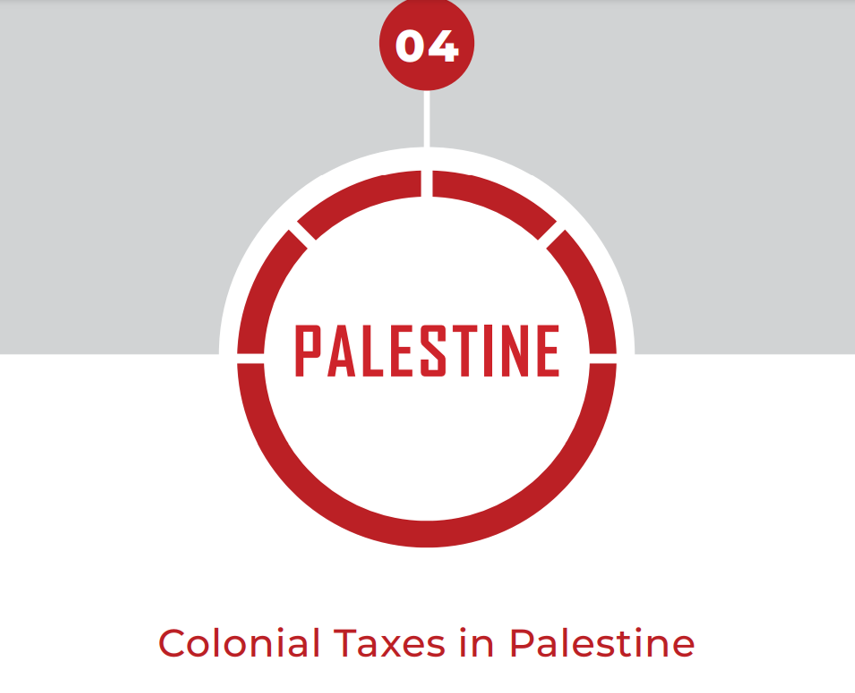

Introduction
The history of taxes in Palestine is long and goes back to the empires and the States that ruled the Arab region, including Palestine. In the Byzantine era, a large number of taxes were imposed on people, including land taxes, canal taxes, grain taxes, head taxes, trade taxes, and taxes on crafts, houses and livestock. In the Arab-Islamic era, taxes were set by tribute and abscess. In the Ottoman era, in addition to the general taxes, governors imposed taxes of their own, including some strange ones, such as the tax of celibacy, marriage, and “the arrival of boys.” These taxes were taken when a baby was born, in addition to a tax collected in every feast 56, which turned into a social custom practiced on holidays among relatives.
The aim of the State was to impose and collect taxes mainly to finance its expenses and armies, but as we saw in the Ottoman era, this has impoverished people and increased the wealth of certain classes of rulers and administrative staff. It was also an essential tool to confiscate lands from farmers for failing to pay the high taxes imposed on them. “The profitability of export-oriented agricultural production and the expansion of agricultural lands have led Turkey to re-examine the laws on the individual ownership of lands, and has thus enacted the Land Act in 1858 and the Land Foreign Ownership Act in 1867. The Ottoman government sought this given the need for money to cover war expenses through the commitment system. Therefore, lands were transformed into commercial commodities, and the transfer of lands from one owner to another was facilitated; this resulted into an economic transformation of agriculture to concentrate land ownership in fertile areas, where heavily indebted farmers have been forced to sell their lands to repay these debts.” Some taxes57 imposed during the Ottoman era continued for a long time after its demise, and some of them are still in effect in the Occupied Palestinian Territory.
The British Mandate kept this pattern of exploiting the Palestinians for the purposes of financial collection and the liberation of labor through land control and ownership expropriation; it made adjustments to the tax system, the most important were the agricultural taxes. “The British colonialism introduced a new system of fees collection on agriculture and agricultural lands, replacing in-kind income with cash income. Taxes and collection forms were also amended, from the tenth to a fixed annual tax, while promoting the status of villages’ mayors as tax collectors, which weighed heavily on farmers, and contributed to lands transfer through sale to the Jewish Agency.” As anger mounted over58 Jewish control of the territories, during the 1936 revolution, people refrained from paying taxes, in addition to boycotting Jewish settlements.
Click here for the full report: Colonial Taxes in Palestine
This is a part of "Report on Taxes and Social Justice in the Arab Countries" studies
Recent publications

